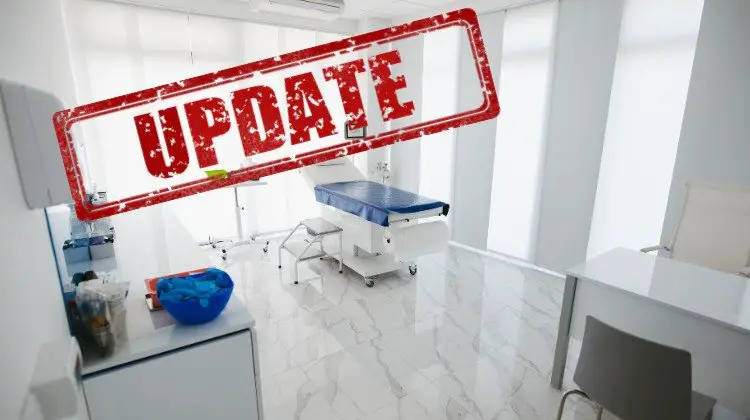
Veterans’ healthcare has been a hot topic in recent years, with debates swirling around access, quality, and choice. Now, a new bill introduced to allow private healthcare for veterans is stirring up fresh discussions. This legislation aims to expand options for those who’ve served our country, potentially transforming how they receive medical care.
The proposed bill, known as the Complete the Mission Act, would build upon previous efforts to give veterans more flexibility in their healthcare choices. It’s a move that’s generating both excitement and concern among veterans, lawmakers, and healthcare providers.
At its core, this bill seeks to address long-standing issues within the Veterans Affairs (VA) healthcare system. Many veterans have faced challenges accessing timely care, particularly those living in rural areas or dealing with specialized medical needs. The Complete the Mission Act aims to tackle these problems head-on by expanding veterans’ ability to seek care from private providers.
Table of Contents:
- Expanding Veterans’ Healthcare Options
- The Pilot Program: Testing New Approaches
- The Debate: Balancing VA Care and Private Options
- Potential Impact on Veterans’ Healthcare
- FAQs about bill introduced to allow private healthcare for veterans
- Conclusion
Expanding Veterans’ Healthcare Options
The bill introduced to allow private healthcare for veterans would significantly broaden the scope of community care options. Under current rules, veterans can access private care under certain conditions, such as living far from a VA facility or facing long wait times. The new legislation would ease these restrictions, making it easier for veterans to choose where they receive their healthcare.
One key provision of the bill is the expansion of extended care services in the private sector. This could include mental health residential rehabilitation and other specialized treatments that may not be readily available at all VA facilities. For veterans struggling with complex health issues, this change could be life-changing.
Removing Barriers to Access
Another significant aspect of the proposed legislation is its approach to telehealth. The bill would prohibit the VA from considering telehealth availability when determining a veteran’s eligibility for community care. This means that even if a VA doctor could provide a virtual appointment, veterans would still have the option to seek in-person care from a private provider if they prefer. This change acknowledges that while telehealth has become increasingly important, especially in the wake of the COVID-19 pandemic, it’s not always the best solution for every veteran or every medical situation. By removing this potential barrier, the bill aims to give veterans more control over their healthcare decisions.
The Pilot Program: Testing New Approaches
One of the most innovative aspects of the bill is a proposed three-year pilot program. This initiative would allow veterans to enroll in non-VA outpatient mental health or substance use treatment without requiring a VA referral. It’s a bold move that could significantly reduce wait times for these critical services. Mental health care has long been a priority for veteran advocates, given the high rates of PTSD, depression, and other mental health challenges among those who’ve served. By streamlining access to these services, the pilot program could potentially save lives and improve outcomes for countless veterans.
Addressing Wait Times and Quality of Care
The bill also tackles the persistent issue of wait times at VA facilities. It would require the VA to publish wait times for all of its medical facilities, providing greater transparency and helping veterans make informed decisions about where to seek care. Additionally, the legislation aims to improve the quality of care by giving private sector providers more time to submit claims for reimbursement to the VA. This change could encourage more healthcare providers to participate in the community care program, ultimately expanding the network of options available to veterans.
The Debate: Balancing VA Care and Private Options
While the bill introduced to allow private healthcare for veterans has garnered support from many quarters, it’s not without its critics. Some worry that expanding private care options could undermine the VA healthcare system, potentially leading to reduced funding and resources for VA facilities. Supporters of the bill, however, argue that it’s not about replacing VA care but rather complementing it. They point out that many veterans still prefer to receive care at VA facilities, which specialize in treating service-related conditions. The goal, they say, is to provide veterans with more choices and ensure they can access the best possible care, whether that’s through the VA or private providers.
The Role of Community Care
It’s worth noting that community care isn’t a new concept in veterans’ healthcare. The VA MISSION Act, passed in 2018, already expanded veterans’ access to private sector care. Under this program, the VA has seen a significant increase in community care appointments. In fact, according to recent data, nearly 40% of VA care is now provided through community partners. This trend suggests that many veterans value having the option to seek care outside the VA system when needed.
Potential Impact on Veterans’ Healthcare
If passed, the bill introduced to allow private healthcare for veterans could have far-reaching effects on how veterans receive medical care. For those living in rural areas or far from VA facilities, it could mean easier access to local doctors and specialists. Veterans with complex or specialized medical needs might find it easier to get the care they need without long waits or extensive travel. However, the potential impact goes beyond just accessibility. By giving veterans more control over their healthcare decisions, the bill could lead to increased satisfaction and potentially better health outcomes. When patients have a say in their care and can choose providers they trust, they’re often more engaged in their treatment and more likely to follow through with medical recommendations.
Considerations for Implementation
If the bill passes, its success will largely depend on how it’s implemented. Ensuring a smooth transition and maintaining quality of care across both VA and private providers will be crucial. The VA would need to develop robust systems for coordinating care, sharing medical records, and overseeing the quality of private sector providers participating in the program. There’s also the question of cost. While the bill aims to use existing VA funding, expanding private care options could potentially increase overall healthcare spending. Balancing the desire for choice with fiscal responsibility will be an ongoing challenge.
FAQs about bill introduced to allow private healthcare for veterans
What is the new bill passed for veterans?
The new bill, known as the Complete the Mission Act, has been introduced to expand private healthcare options for veterans. It aims to make it easier for veterans to access care from non-VA providers, including for extended care services and mental health treatment.
Will the VA pay for private doctors?
Yes, under the proposed bill, the VA would continue to pay for care provided by private doctors who are part of the community care network. The bill aims to expand this network and make it easier for veterans to access these providers.
What is the veterans Healthcare Eligibility Reform Act?
The Veterans Healthcare Eligibility Reform Act is a separate piece of legislation that reformed VA healthcare eligibility in the 1990s. The current bill builds upon this and other reforms to further expand healthcare options for veterans.
What is the new Pact Act for veterans?
The PACT Act, passed in 2022, is not directly related to this new bill. It expanded VA healthcare and benefits for veterans exposed to toxic substances during their military service. The new bill focuses more broadly on expanding private healthcare options for all eligible veterans.
Conclusion
The bill introduced to allow private healthcare for veterans represents a significant shift in how we approach veterans’ healthcare. It’s a complex issue that touches on fundamental questions about choice, quality of care, and the role of the VA in serving those who’ve served our country. As the debate continues, it’s clear that the goal of improving veterans’ healthcare is shared by all sides.
Whether through strengthening the VA system, expanding private care options, or finding a balance between the two, the focus remains on ensuring that veterans receive the high-quality, accessible care they’ve earned through their service. The path forward will require careful consideration, robust debate, and a commitment to putting veterans’ needs first. As this bill makes its way through the legislative process, it will undoubtedly continue to evolve. What remains constant is the recognition that our veterans deserve the best possible healthcare, however that may be delivered.



Leave a Reply